Estás filtrando por
Se encontraron 1869 resultados en recursos
Impreso que un conservador envía al Ministro de relaciones exteriores, Carlos Martínez Silva, para aclarar que no es el autor de una hoja suelta titulada Memorial en la que se critica su gestión política. A lo largo del documento el autor da varios argumentos para defenderse de las acusaciones que le hacen.
Fuente:
Biblioteca Virtual Banco de la República
Formatos de contenido:
Prensa
Compartir este contenido
Memorial número 2
Copia el enlace o compártelo en redes sociales
Un viejo liberal
Impreso en el que José María Pérez Miguel, político liberal del Tolima, corrige y comenta los hechos que tuvieron lugar en el Estado soberano entre 1867 y 1868, y se defiende de las acusaciones que maliciosamente se han formulado en su contra. A lo largo del documento, Pérez argumenta que en el periódico La Estrella del Tolima se han publicado varios argumentos falsos que cuestionan el partido independiente del Tolima, sus ideologías y seguidores.
Fuente:
Biblioteca Virtual Banco de la República
Formatos de contenido:
Prensa
Compartir este contenido
Un viejo liberal
Copia el enlace o compártelo en redes sociales
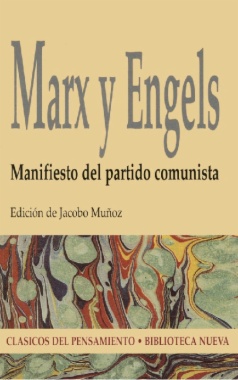
Manifiesto del partido comunista
Redactado por Marx y Engels a solicitud del segundo congreso de la Liga Comunista y publicado en Londres en 1848, este Manifiesto tardó poco en desbordar los límites de su inicial condición coyuntural, hasta el punto de llegar a tener en el último siglo y medio una difusión sólo comparable con la Biblia y una influencia, como documento político clásico, de radio acaso sólo parejamente alcanzado por la Declaración de los Derechos del Hombre y del Ciudadano. Su aliento moral, la amplitud de la mirada histórico-universal que en él se despliega y hasta su factura formal genial lo convierten, por otra parte, en una imprescindible introducción al legado de Marx.
Fuente:
Digitalia
Formatos de contenido:
Libros
Compartir este contenido
Manifiesto del partido comunista
Copia el enlace o compártelo en redes sociales
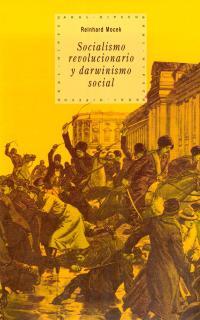
Socialismo revolucionario y darwinismo social
Este ensayo describe y evalúa la actitud del marxismo y el socialismo ante las propuestas de una mejora del género humano siguiendo la teoría de la lucha por la existencia de Darwin. El darwinismo social que cabe calificar de académico pretende lograr esa mejora facilitando la reproducción de los hombres más vigorosos e impidiendo la de los débiles, acudiendo a técnicas y medidas políticas centradas en lo biológico. Dentro de esta trayectoria, Galton y Weismann pasan por ser los fundadores de la eugenesia genéticamente argumentada. En cambio, el darwinismo social de cuño socialista formula una...
Fuente:
Digitalia
Formatos de contenido:
Libros
Compartir este contenido
Socialismo revolucionario y darwinismo social
Copia el enlace o compártelo en redes sociales
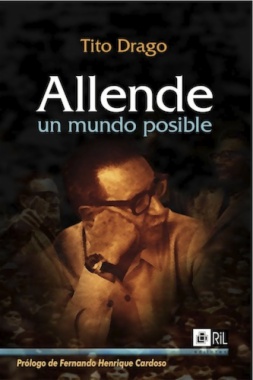
Allende: un mundo posible
En este libro confluyen el testimonio con el análisis político y social de las últimas décadas de la historia de Chile. El autor alterna el relato periodístico con el estudio e interpretación de los hechos, para explicar cómo una oposición política deviene en una conspiración cívico-militar. Al mismo tiempo, se despliega una profunda autocrítica sobre algunas de las propuestas políticas de la izquierda chilena de ese entonces. Para Tito Drago, el proyecto de Salvador Allende aún tiene vigencia moral, social y política en el siglo XXI, esto es, la posibilidad de desarrollar un proceso de profundos cambios sociales, de manera compatible con la libertad y la democracia.
Fuente:
Digitalia
Formatos de contenido:
Libros
Compartir este contenido
Allende: un mundo posible
Copia el enlace o compártelo en redes sociales
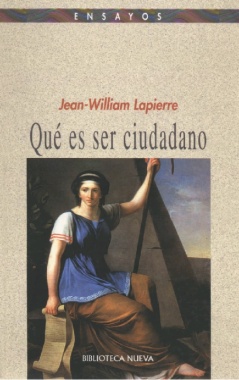
¿Qué es ser ciudadano?
¿Cómo las innovaciones sociales que aparecieron a finales del siglo XX han podido transformar el modo de organización del poder y la regulación política? Innovaciones en las relaciones entre sexos y generaciones, en la relación con el medio natural, en las relaciones de producción y de intercambio, en las técnicas de comunicación, en las relaciones entre comunidades de culturas diferentes. Frente a esos cambios, los ciudadanos del siglo XXI, a quienes se les acusa hoy de incivismo y de apoliticismo, tendrán que inventar nuevas formas de organización del sistema político, a través de movimientos...
Fuente:
Digitalia
Formatos de contenido:
Libros
Compartir este contenido
¿Qué es ser ciudadano?
Copia el enlace o compártelo en redes sociales
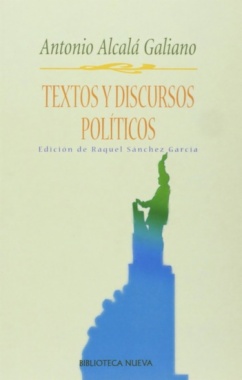
Textos y discursos políticos
Antonio Alcalá Galiano (1789-1865) ha pasado a la historia política de España como uno de los grandes oradores parlamentarios del siglo XIX. Su trayectoria vital, que recorre toda la apasionante aventura de la implantación del régimen representativo en nuestro país, es un buen trasunto de la evolución del liberalismo español. Desde unos orígenes en los que se comportó como un radical más cercano a la retórica que a la convicción, su evolución personal desembocó en un conservadurismo escéptico y, en algunos aspectos, reaccionario.
Fuente:
Digitalia
Formatos de contenido:
Libros
Compartir este contenido
Textos y discursos políticos
Copia el enlace o compártelo en redes sociales
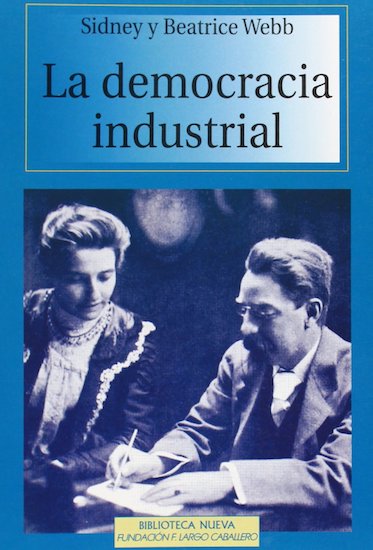
La democracia industrial
Con La democracia industrial (1898) Sidney y Beatrice Webb ponían cierre interpretativo y político a la monumental reconstrucción de las organizaciones sindicales británicas iniciada con su Historia del sindicalismo. En esta obra se compendia una teoría del sindicalismo, anclada en el estudio sistemático de hechos y documentación, en la observación participante, en las entrevistas. . . es, como señalara medio siglo después Lord Beveridge, "un ejemplo de ciencia política y sociología basado no en teorías sino en la descripción y análisis de las instituciones". Un estudio en profundidad de cómo...
Fuente:
Digitalia
Formatos de contenido:
Libros
Compartir este contenido
La democracia industrial
Copia el enlace o compártelo en redes sociales
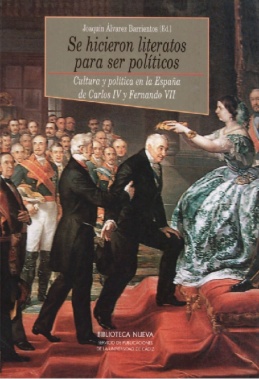
Se hicieron literatos para ser políticos
El grupo de especialistas, dirigidos por Joaquín álvarez Barrientos, investigador del CSIC, se ha acercado a una época de difícil caracterización: el final del siglo XVIII y el comienzo del siglo XIX, años que parecen tener personalidad propia, en los que se inicia la modernidad nacional. La perspectiva pluridisciplinar ha permitido estudiar el arte y la literatura en relación con el marco político y desarrollar sus tensiones de causa y efecto. También se ha puesto especial interés en conocer la comunicación entre los hombres de letras y los políticos. Estampas, aleluyas, pliegos de cordel, prensa, poesía, historia, novela, teatro, debates literarios, se estudian a la luz de un planteamiento amplio, sin olvidar las construcciones que de los hechos históricos y culturales de esa época hicieron sus protagonistas mediante autobiografías y memorias.
Fuente:
Digitalia
Formatos de contenido:
Libros
Compartir este contenido
Se hicieron literatos para ser políticos
Copia el enlace o compártelo en redes sociales
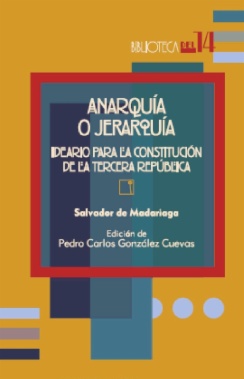
Anarquía o jerarquía
Fuente:
Digitalia
Formatos de contenido:
Libros
Compartir este contenido
Anarquía o jerarquía
Copia el enlace o compártelo en redes sociales
Selecciona las Colecciones en las que vas a añadir el contenido
Para consultar los contenidos añadidos busca la opción Tus colecciones en el menú principal o en Mi perfil.
